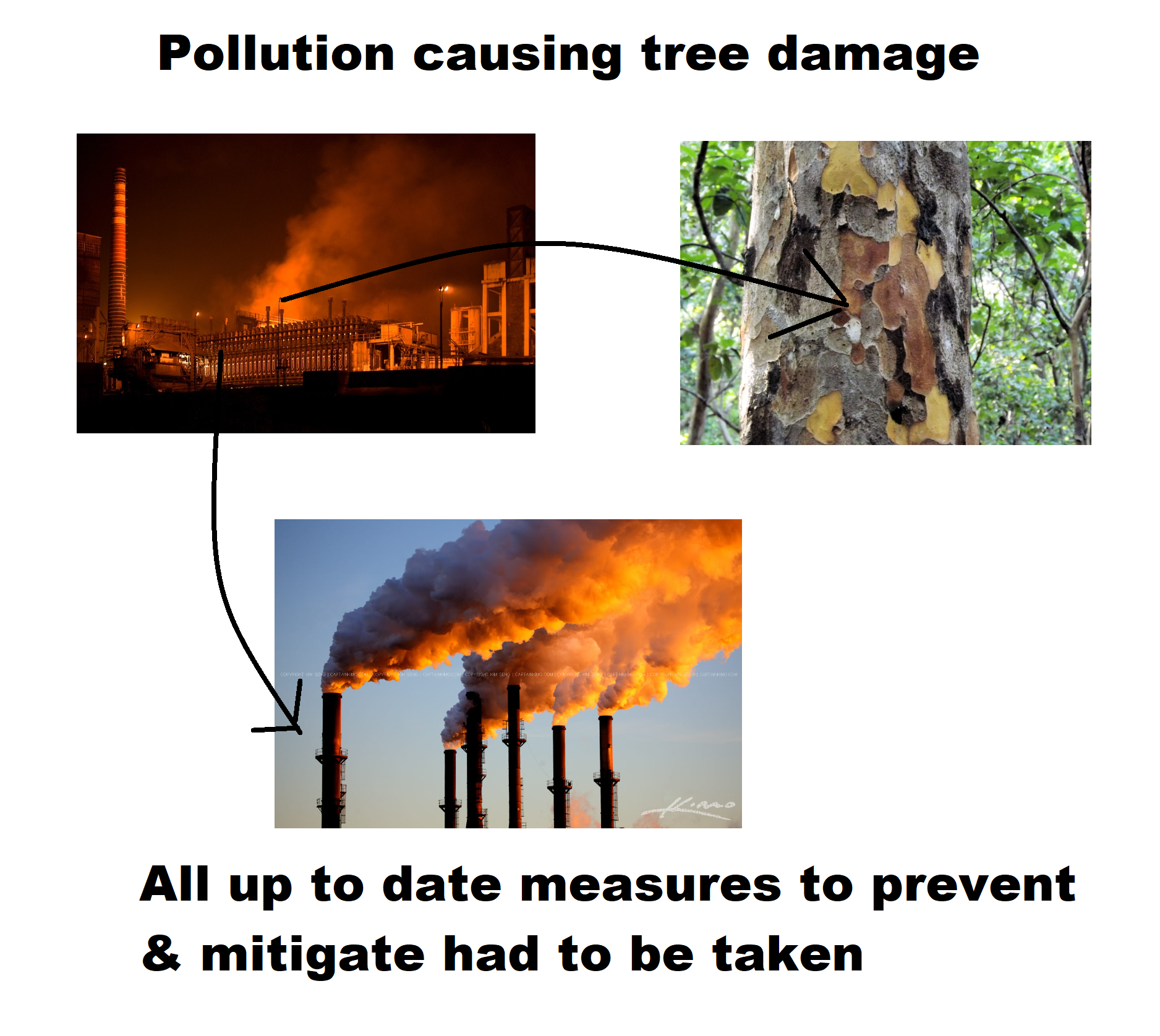St Helens Smelting Co v Tipping, [1865] 11 HL Cas 642, [1865] UKHL J81, 11 E.R. 1483
Citation:St Helens Smelting Co v Tipping, [1865] 11 HL Cas 642, [1865] UKHL J81, 11 E.R. 1483 .
Rule of thumb:If there is pollution floating into your property from another property, is this a breach of the law? Where this pollution can be shown to be causing damage to the property or the people inside it, even if the damage is de minimis, then this is deemed to be an actionable environmental nuisance.
Background facts:
The basic facts of this case were that emissions from a nearby factory were damaging the trees in the area. A person in the area raised an environmental nuisance complaint against the factory.
Parties argued:
The factory argued that they were not breaching any planning requirement conditions, and that the damage was de minimis. The complainants argued that they should be taking measures to prevent this and that this was therefore a nuisance.
Judgment:
The Court held that this was a successful nuisance, as when there is actual damage to property or persons, this is actionable and the factory could not show that they had taken all reasonable measures to prevent or mitigate the effects of this, which the factory were not doing. The Court affirmed that the causing of pollution is a nuisance.

Ratio-decidendi:
" My Lords, in matters of this description it appears to me that it is a very desirable thing to mark the difference between an action brought for a nuisance upon the ground that the alleged nuisance produces material injury to the property, and an action brought for a nuisance on the ground that the thing alleged to be a nuisance is productive of sensible personal discomfort. With regard to the latter, namely, the personal inconvenience and interference with one's enjoyment, one's quiet, one's personal freedom, anything that discomposes or injuriously affects the senses or the nerves, whether that may or may not be denominated a nuisance, must undoubtedly depend greatly on the circumstances of the place where the thing complained of actually occurs. If a man lives in a town, it is necessary that he should subject himself to the consequences of those operations of trade which may be carried on in his immediate locality ….. But when an occupation is carried on by one person in the neighbourhood of another, and the result of that trade, or occupation, or business, is a material injury to property, then there unquestionably arises a very different consideration. I think, my Lords, that in a case of that description, the submission which is required from persons living in society to that amount of discomfort which may be necessary for the legitimate and free exercise of the trade of either neighbours, would not apply to circumstances the immediate result of which is sensible injury to the value of the property’, Lord Westbury L.C. at 1486
Warning: This is not professional legal advice. This is not professional legal education advice. Please obtain professional guidance before embarking on any legal course of action. This is just an interpretation of a Judgment by persons of legal insight & varying levels of legal specialism, experience & expertise. Please read the Judgment yourself and form your own interpretation of it with professional assistance.

